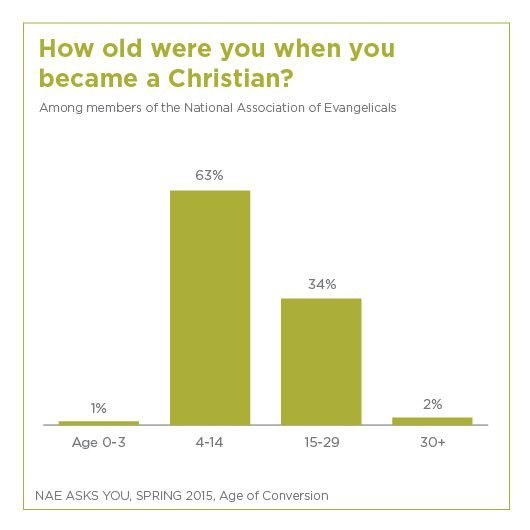
Yesterday, I received the following email from a man named Fain Grogg. My editor, Carolyn, sent Grogg a curt reply earlier today — thank you — but I thought I would respond to several allegations and assertions Grogg makes in his email. All spelling and grammar are found in the original.
Grogg read all of two posts: Southern Gospel Singer Kenny Bishop is Now a Gay United Church of Christ Pastor and Bruce, You Are a Dishonest, Deceptive Apostate, And You Hate God Too! before sending me the following email. As Carolyn pointed out, Grogg didn’t read any of my autobiographical material. This, of course, doesn’t surprise me. Evangelicals, as a whole, lack curiosity (Curiosity, A Missing Evangelical Trait), even though the Bible says in Proverbs 18:13: Answering before listening is both stupid and rude. (Update: After receiving Carolyn’s email, Grogg returned to this site and read two posts: My Baptist Salvation Experience and Why I Stopped Believing.)
Bruce, Yes I have read article of Kenny Bishop, I had heard around 1999 that he made an unwanted advance only a female (from the Bishops music business office). I knew that at that time- he continued preaching.
Grogg came to this site looking for information (dirt) about Kenny Bishop — a former Fundamentalist Southern Gospel singer who is now a gay man and the pastor of a United Church of Christ congregation. If you are not familiar with Kenny’s story, please read Southern Gospel Singer Kenny Bishop is Now a Gay United Church of Christ Pastor. I have been acquainted with Kenny for thirty years. My wife, Polly, and I have heard The Bishops in concert several times, and we owned most of their CDs back in our Christian days. Even today, I will listen to The Bishops from time to time.
I was pleasantly surprised when I learned that Kenny is gay and is now the pastor of a mainline congregation in Louisville, Kentucky. I can only imagine the personal pain Kenny has experienced going from a hardcore Fundamentalist to a progressive, inclusive Christian.
I am aware of the rumor mentioned by Grogg. I don’t know exactly what happened. I do know that Kenny abruptly left his family’s singing group, later divorcing his wife of fifteen years, Debra Hardy. In 2018, Kenny married Mason Miller.
My question is at one time you must have given your heart and life to God & felt the calling to preach for 25 years.
Yes, at the age of fifteen, I was saved/born again at a revival meeting at Trinity Baptist Church in Findlay, Ohio. Two weeks later, I stood before the church and told them that I believed God was calling me to preach. Not long after, I preached my first sermon. At the age of nineteen, I enrolled for classes at Midwestern Baptist College, an Independent Fundamentalist Baptist (IFB) institution in Pontiac, Michigan. While there, I met and later married a beautiful dark-haired preacher’s daughter. In 1979, Polly and I left Midwestern, moving to Bryan, Ohio. Two months later, I started working for Montpelier Baptist Church. All told, I spent twenty-five years in the ministry, pastoring churches in Ohio, Texas, and Michigan. Over the course of my thirty-three-year preaching career, I preached 4,000 sermons. While I certainly wasn’t perfect and did things I certainly regret, the bend of my life was toward godliness and holiness. I was, in every way, a Christian.
What happened to cause you to walk away from God’s calling on your life or did you just decide that being a minister was an easy paycheck. Then to say 2 years later you left Christianity completely. There must have been something drastic happen.
Had Grogg bothered to read the posts on the WHY? page, he would have found ALL the answers to his questions.
Grogg, as many who have come before him, can’t make the square peg of my life story fit into the round hole of his rigid Evangelical Christianity. Instead of considering that HE might the one who has a problem, Grogg goes looking for ulterior motives for my deconversion.
First, without ANY knowledge about the arc of my life, Grogg suggests that I stayed in the ministry because it was an easy paycheck. Is he suggesting that I never was a Christian or that the ministry is a place to make easy money? He doesn’t say, so I find it difficult to understand exactly what he is saying here.
Carolyn schooled Grogg on “all” the money I didn’t make as a pastor, often living in poverty or working long hours at secular jobs so the churches I pastored could have a full-time pastor. Not one of the seven churches I pastored over the years paid me a living wage. None of these churches provided me with health insurance, retirement, or other fringe benefits. I pastored churches because I loved God, desired to win souls for Christ, and wanted to help people grow and mature in their faith. I worked secular jobs while pastoring. I ALWAYS made more money outside of the church.
Grogg suggests that something “drastic” had to happen for me to walk away from Christianity. I am sure he thinks there is some sort of nefarious reason/secret for my deconversion, but as I spell out on the WHY? page, I deconverted because the central claims of Christianity no longer made sense to me. (Please see The Michael Mock Rule: It Just Doesn’t Make Sense.) Using reason, skepticism, and common sense, I concluded that the beliefs at the core of Christianity: the inerrancy and infallibility of the Bible, the deity of Christ, the virgin birth, Jesus’ resurrection from the dead, and his miracles were not true. Not believing these things, I could no longer call myself a Christian. Was my deconversion “drastic”? Yes, but it was the right conclusion after I had carefully re-examined the teachings of the Bible.
You mentioned for people not to send you words from Bible. The Great Commission that you once believed is why we reach out and pray for you
While Grogg did not quote the Bible, he justified the behavior of those who do. I specifically ask letter writers to not send me Bible verses:
If you are an Evangelical Christian, please read Dear Evangelical before sending me an email. If you have a pathological need to evangelize, spread the love of Jesus, or put a good word in for the man, the myth, the legend named Jesus, please don’t. The same goes for telling me your church/pastor/Jesus is awesome. I am also not interested in reading sermonettes, testimonials, Bible verses, or your deconstruction/psychological evaluation of my life. By all means, if you feel the need to set me straight, start your own blog.
Grogg thinks ignoring my request is justified because the Bible says that Christians are to go into all the world and preach the gospel to every person. Never mind the fact that I am quite familiar with the Christian gospel. What could any of these zealots possibly say to me that I don’t already know? No, the real issue here is not my salvation; it is Evangelicals reinforcing their own beliefs; quelling questions and doubts they might have about their own salvation and beliefs. I get it. My story troubles them. Instead of wrestling with their own doubts and questions, they try to discredit and marginalize me instead.
Imagined if I worshipped DooDoo, as found in an ancient religious text from the first century. Imagine if I came to your house and pissed and shit on your front porch. Would that upset you? I suspect it would. When confronted by you, I replied “Thus saith DooDoo in First Bowel Movement 28:19,20: When thou comest upon a Christian home, thou shalt piss and shit on their front porch, reminding them that I am DooDoo, the one true God, he who moves and lives in all human beings. Would anyone be okay with me doing this? Yet, that is exactly what Grogg and his fellow Evangelicals think they have a right to do. Grogg believes he has no obligation to respect my wishes. And he’s right. He can do what he wants. However, he shouldn’t feign outrage and surprise when I call him out on his boorish behavior.
Saved by Reason,

Bruce Gerencser, 68, lives in rural Northwest Ohio with his wife of 47 years. He and his wife have six grown children and sixteen grandchildren. Bruce pastored Evangelical churches for twenty-five years in Ohio, Texas, and Michigan. Bruce left the ministry in 2005, and in 2008 he left Christianity. Bruce is now a humanist and an atheist.
Your comments are welcome and appreciated. All first-time comments are moderated. Please read the commenting rules before commenting.
You can email Bruce via the Contact Form.



